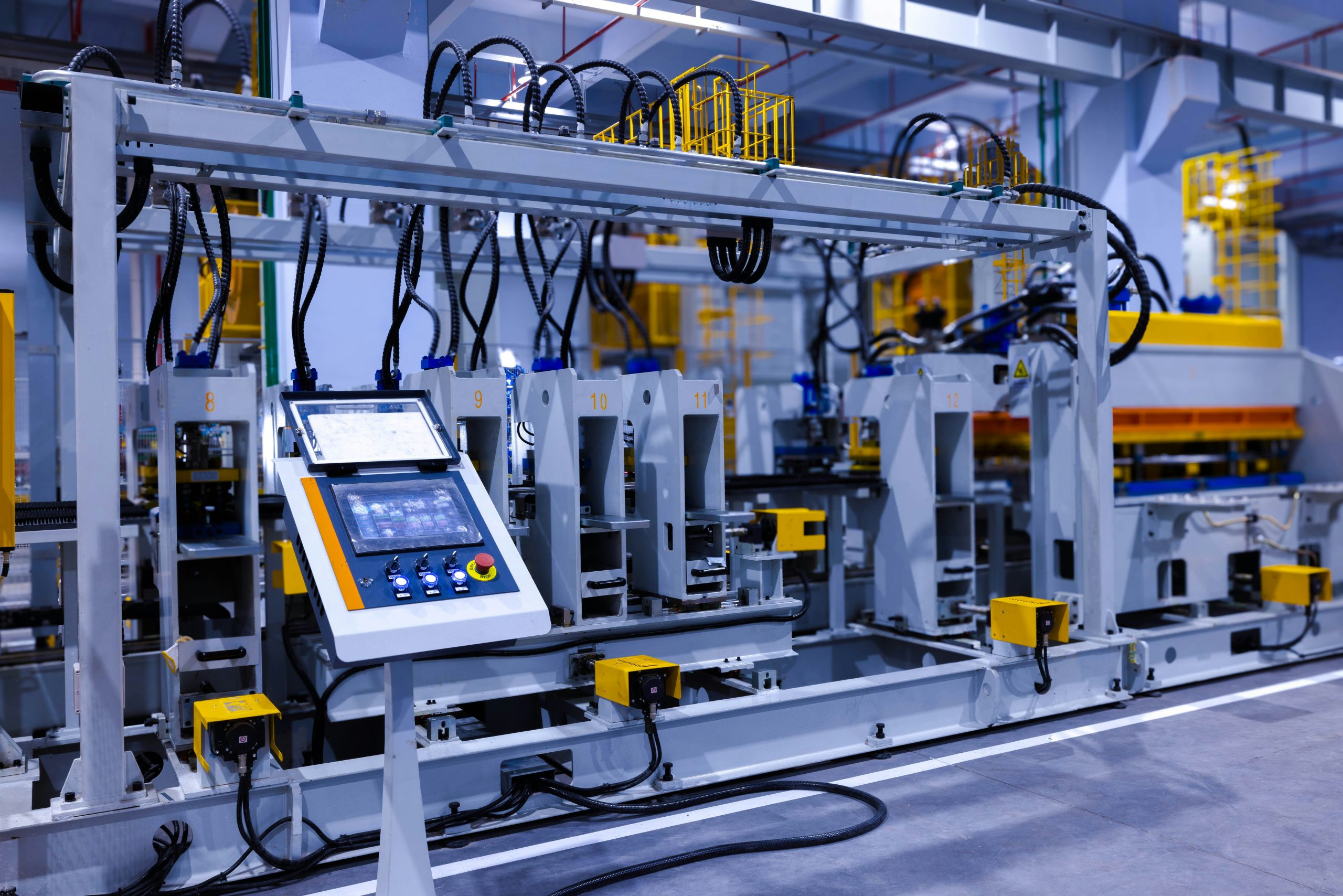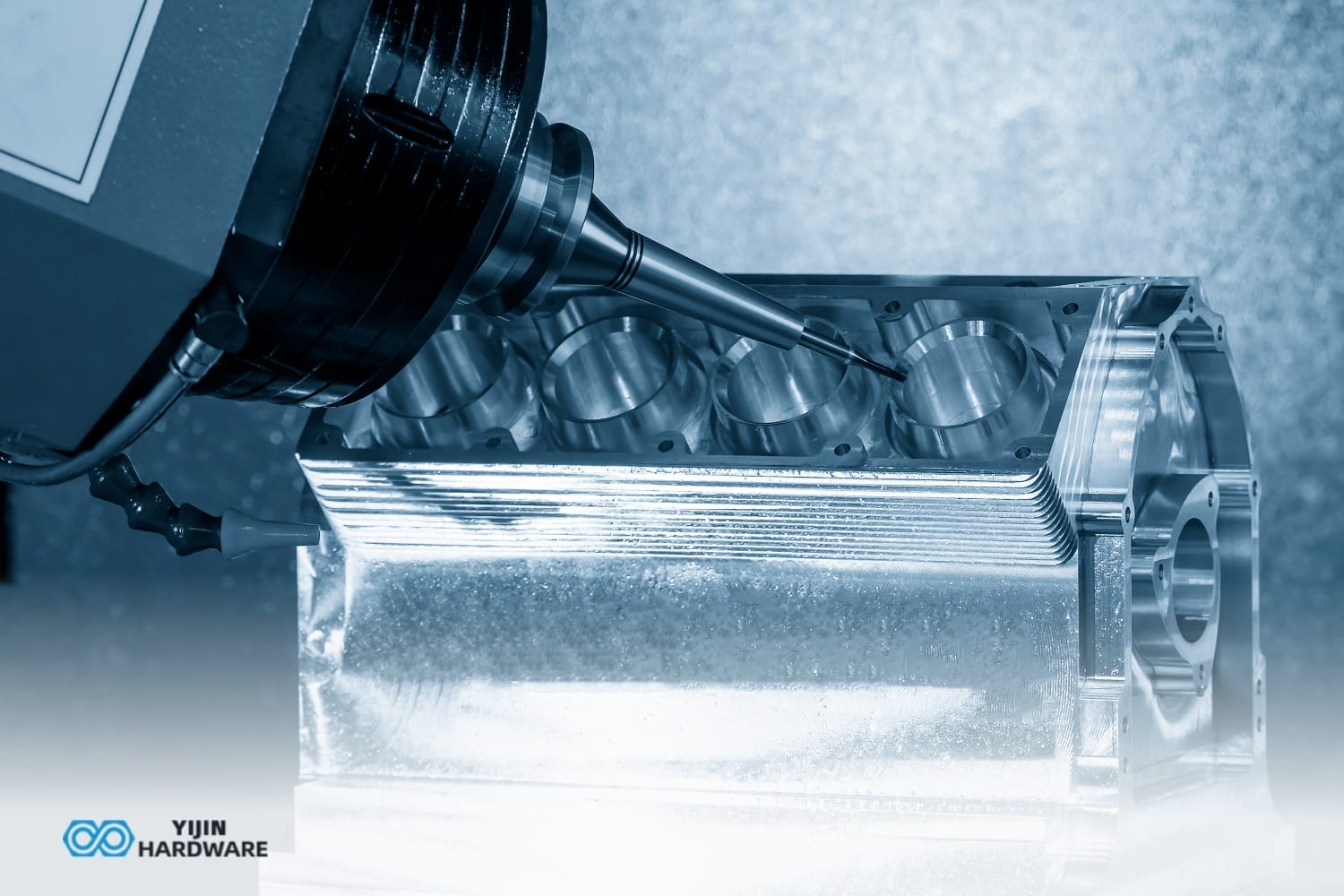Exactly How CNC Machining Providers Boost Efficiency in Milling and Turning Processes
CNC machining solutions play a critical function in enhancing performance within milling and transforming procedures. By making use of automation and precise control, these services minimize human mistake and warranty consistent output. The ability to handle complex geometries and maintain tight tolerances streamlines manufacturing. The full level of CNC innovation's influence goes past fundamental effectiveness gains. There are deeper implications and future trends that warrant more expedition.
The Fundamentals of CNC Machining
CNC machining is an exact production process that utilizes computer-controlled machines to produce detailed components and elements. This technology utilizes computer-aided style (CAD) software application to create detailed versions, which are after that translated right into equipment directions. The procedure commonly entails different operations such as milling, transforming, and boring, enabling suppliers to attain high levels of precision and repeatability.
CNC devices are geared up with innovative tooling that can control materials like plastic, wood, and metal. They operate through a collection of commands that dictate activities, speeds, and device adjustments, reducing human mistake and improving production effectiveness.
The automation inherent in CNC machining permits for limited tolerances and intricate geometries to be constantly produced, making it a favored selection in markets calling for accuracy, such as aerospace and vehicle. Understanding the fundamentals of CNC machining is important for appreciating its duty in contemporary production processes.
Advantages of CNC Machining in Milling
CNC machining uses significant benefits in milling processes, especially regarding precision and precision. This technology not only boosts production rate but likewise permits the creation of complicated layouts that would be challenging to accomplish by hand. As a result, companies can enhance performance and broaden their abilities in production.
Precision and Accuracy
Achieving unequaled accuracy and precision in milling processes is a hallmark of sophisticated machining methods. CNC machining services make use of computer-controlled systems that diligently execute designs with very little human intervention. This automation ensures that each cut and shape is done to specific requirements, significantly minimizing the danger of mistakes commonly connected with hand-operated milling. The capacity to generate intricate geometries with limited resistances is a vital benefit, permitting suppliers to fulfill rigorous top quality needs. In addition, CNC makers can preserve consistent performance throughout numerous runs, assuring harmony in production. This level of precision not just boosts product quality but also lowers product waste, causing much more efficient use sources. Generally, CNC machining solutions change milling procedures with their commitment to precision and information.
Enhanced Production Rate
Speeding up production speed is one of the standout advantages of contemporary machining services. CNC machining considerably decreases the moment required for milling processes by automating operations and reducing manual treatment. Devices can operate constantly, permitting raised outcome without giving up top quality. The capability to program multiple jobs into a solitary setup additionally improves manufacturing, enabling suppliers to total facility tasks in much less time. Furthermore, CNC equipments preserve high-speed reducing capabilities, causing quicker product removal and faster cycle times. This boosted efficiency translates to much shorter preparations, allowing firms to respond quickly to market needs. In general, raised production rate through CNC machining not only improves productivity however additionally improves competitive benefit in the production sector.
Complicated Layout Capabilities
The capability to produce detailed designs is a substantial advantage of modern-day machining services. CNC machining enables for the manufacturing of intricate geometries that would be difficult, if not difficult, to attain using conventional methods. This ability originates from advanced programming and automated tools that exactly comply with electronic plans, ensuring accuracy and repeatability. Because of this, manufacturers can produce elaborate parts with limited tolerances, optimizing efficiency in various applications. Additionally, the adaptability of CNC machines makes it possible for rapid modifications to design specifications without substantial retooling, simplifying the manufacturing procedure. This flexibility not just improves imagination in style however also enables for effective experimentation and development, giving businesses a competitive side in the ever-evolving market.

Benefits of CNC Transforming Procedures
CNC turning processes offer considerable advantages in production, particularly relating to accuracy and accuracy. These procedures enable the production of highly described components with very little tolerances, guaranteeing quality in manufacturing. Furthermore, the efficiency of CNC turning adds to decreased preparations, enabling quicker distribution of ended up items.
Precision and Accuracy
Precision and accuracy are characteristic qualities of CNC transforming procedures, setting them apart in the production landscape. These procedures utilize computer mathematical control to lead cutting devices with unmatched exactness. This leads to elements that fulfill stringent specs and resistances, reducing the possibility of mistakes. CNC transforming permits for repeatable and consistent next manufacturing, ensuring that each part is practically similar, which is essential in sectors requiring high standards, such as aerospace and clinical devices - fast prototyping. Additionally, advanced software application and innovation allow real-time modifications throughout machining, boosting total top quality. By decreasing human mistake and maximizing control over the production procedure, CNC transforming solutions provide remarkable accuracy and precision, making them a crucial choice for modern production demands
Lowered Lead Times
Lowered preparations are a substantial benefit of CNC turning processes, stemming from their capacity to optimize and automate manufacturing. CNC transforming makers operate with high efficiency, allowing for quick arrangement and execution of multiple jobs without the requirement for comprehensive manual intervention. This automation decreases downtime and speeds up the manufacturing procedure, making it possible for quicker turn-around for orders. Furthermore, CNC technology enhances uniformity and reduces mistakes, which additionally adds to faster manufacturing cycles. Therefore, businesses can fulfill tight deadlines and react without delay to market needs. By leveraging CNC turning procedures, companies can simplify process, improve source appropriation, and eventually enhance their one-upmanship through minimized lead times.
Precision and Accuracy in Production
While manufacturing procedures have advanced considerably throughout the years, the value of precision and precision remains vital. In CNC machining, these two aspects are crucial to generating top notch elements that fulfill precise requirements. The integration of advanced computer innovation enables meticulous control over machining parameters, making certain that components are crafted with minimal deviation from designated designs.
Precision in producing refers to the repeatability of procedures, while precision signifies how closely a completed component aligns with its intended dimensions. CNC machines use innovative software and tools that make it possible for manufacturers to achieve both, significantly minimizing the margin for mistake - jig and fixture tooling. This capability is particularly necessary in industries such as aerospace, automotive, and medical, where even minor inaccuracies can result in disastrous failings

Minimizing Lead Times With CNC Modern Technology
CNC innovation speeds up production timelines by simplifying the my explanation machining process. By automating tasks, CNC makers lessen hands-on intervention, substantially reducing the moment required for arrangement and operation. This performance allows manufacturers to respond swiftly to market demands, meeting orders quicker than typical machining techniques permit.
Additionally, CNC modern technology provides quick prototyping capabilities, enabling quick models and adjustments based on customer feedback. The precision of CNC machining makes certain that components are created correctly the very first time, lowering the chance of costly mistakes and revamp.
Additionally, advanced organizing and programs abilities enhance process, permitting numerous operations to run simultaneously. This integration of technology not only reduces lead times however likewise improves general productivity. Ultimately, the adoption of CNC machining solutions gears up producers with the tools necessary to fulfill limited due dates while keeping top quality requirements in production.
The Future of CNC Machining in Industry
As suppliers significantly take on CNC innovation to improve processes and lower lead times, the future of next CNC machining in industry shows up appealing. Developments such as expert system and maker knowing are readied to reinvent the abilities of CNC machines, boosting their precision and adaptability. These improvements will promote real-time tracking and predictive upkeep, decreasing downtime and maximizing production performance.
Additionally, the integration of Net of Things (IoT) modern technologies will make it possible for much better information collection and evaluation, permitting producers to make enlightened decisions that better enhance functional efficiency. The surge of additive manufacturing together with CNC machining is anticipated to complement standard approaches, offering higher layout flexibility and product efficiency.
In addition, as sustainability ends up being a top priority, CNC machining is developing to include environmentally friendly practices, which will draw in eco mindful consumers. On the whole, the future of CNC machining is characterized by continuous advancement and adjustment, placing it as a cornerstone of contemporary production.
Regularly Asked Inquiries
What Products Work With CNC Machining Services?
CNC machining services are compatible with various materials, including metals like aluminum, titanium, and steel, as well as plastics such as acrylic and polycarbonate. Wood and compounds additionally suit CNC procedures for varied applications.
Just How Does CNC Machining Contrast to Typical Machining Approaches?
CNC machining provides higher uniformity, accuracy, and automation compared to traditional techniques. It minimizes human error, enhances production rate, and permits complicated styles, making it an exceptional choice in modern production atmospheres.
What Industries Benefit the Most From CNC Machining Solutions?
The aerospace, automobile, medical, and electronic devices markets benefit considerably from CNC machining solutions. These markets take advantage of precision, modification, and rate to enhance item high quality while reducing manufacturing costs and time, inevitably enhancing total functional efficiency.
Can CNC Machines Take Care Of Complicated Geometries and Layouts?
CNC devices are adept at dealing with intricate geometries and styles, enabling precision and detailed outlining. Their innovative programs capacities allow suppliers to create parts with high accuracy, meeting varied industry needs and enhancing item capability.
What Is the Common Price Range for CNC Machining Solutions?
The regular cost variety for CNC machining solutions varies commonly, usually falling in between $50 to $150 per hour, depending on aspects such as product, complexity, volume, and the certain machining procedures employed.
CNC machining is an accurate production procedure that utilizes computer-controlled devices to create detailed components and parts. CNC machining offers considerable benefits in milling procedures, specifically regarding precision and accuracy. CNC machining considerably lowers the time needed for milling processes by automating operations and reducing hands-on treatment. CNC modern technology increases manufacturing timelines by streamlining the machining process. As producers progressively embrace CNC modern technology to simplify procedures and lower lead times, the future of CNC machining in sector appears appealing.